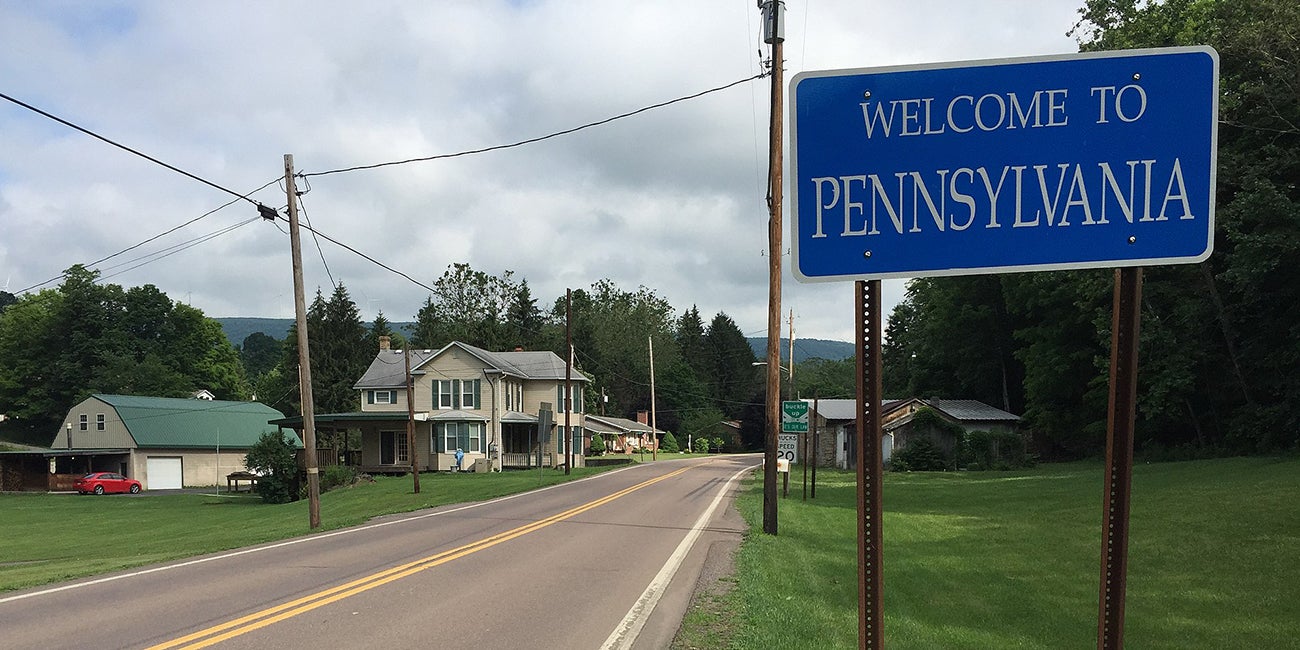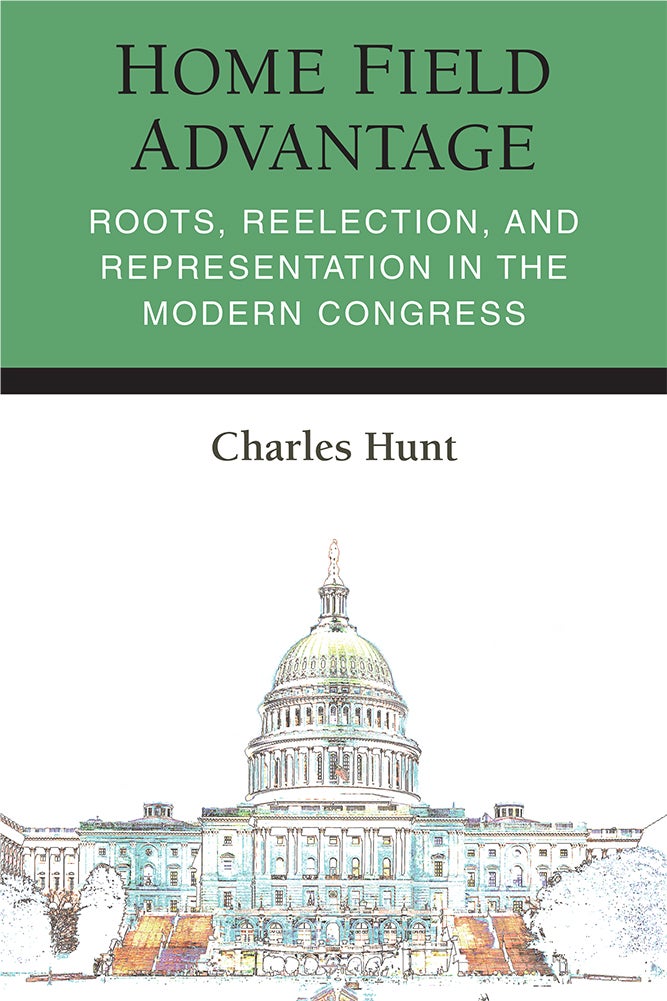
Charles R. Hunt is Assistant Professor of Political Science in Boise State University’s School of Public Service. His research focuses primarily on the U.S. Congress, congressional elections, partisanship, and representation. He has a Bachelor’s degree in Political Science from Brown University, and a Ph.D in Government and Politics from the University of Maryland. Prior to graduate school, he worked as a political consultant and communications professional in Providence, Rhode Island, where he grew up.
He can frequently be heard on Radio Boise’s The Big Tent.
He is the author of Home Field Advantage: Roots, Reelection, and Representation in the Modern Congress.

It’s a midterm election year, and the most closely-followed U.S. Senate race in the country is happening in Pennsylvania. The Lieutenant Governor, Democrat John Fetterman, is running against celebrity physician-turned-Republican-politician Mehmet Oz.
The state was decided by less than a percentage point in the 2020 presidential election. It’s also shaping up to be a difficult year for Democrats politically, with President Biden’s approval ratings down in the 30s. And to top it off, Fetterman suffered a major stroke in May, and has been unable to campaign in person for months.
So how on earth is he running 11 points ahead of his Republican opponent, according to the latest Fox News poll?
“Jersey Strong” in Pennsylvania?
One answer can be found in what’s become the central issue of the race, at least based on Fetterman’s media strategy. The issue is not abortion, the constitutional right to which was revoked by the Supreme Court this summer; nor is it even election fraud or fealty to Donald Trump. It is Oz’s distinct lack of biographical roots or authentic connection to the state he is running to represent in the Senate.
Day after day, Fetterman’s campaign pillories Dr. Oz (as he is most widely known from his television career) as an out-of-touch out-of-towner who is more at home in neighboring New Jersey than in the state he is vying to represent. Fetterman has run ad after ad using Oz’s own words to highlight his deep Jersey roots. His campaign started a petition to enlist Oz into the New Jersey hall of fame. Fetterman even went so far as to enlist famously-Jersey celebrities like Jersey Shore’s Snooki to try and coax Oz back to his home state.
Amusing though it may be, this kind of expert-level trolling—and the polling boost it seems to have provided—tells us a lot about the intersection of politics and place, and the local connections between voters and candidates that have huge impacts on electoral outcomes.
Home field advantages

These kinds of connections are the subject of my new book, Home Field Advantage, which takes an in-depth look at the local roots members of Congress have in their home districts. Specifically, I chart the many ways in which these kinds of deep roots can help convince constituents to trust you—and, ultimately, vote for you.
For this book, I collected decades’ worth of data about members of the U.S. House of Representatives, including information about where they were born; went to high school; went to college or postgraduate school; and worked or served in office before they actually got to Congress. I then determined whether these biographical markers took place locally—that is, within the boundaries of the district they represent—or not. Members with lots of local biography scored high on the resulting “Local Roots Index” calculated from this data, while others without these local roots scored low.
In test after test, I found that members of Congress with higher Local Roots Index scores enjoyed better electoral positioning than their colleagues without local roots. Members with deep ties in their districts, for example, are less than half as likely to be challenged in their primary elections. They run several points ahead of their party’s presidential nominees in their districts, compared to their “carpetbagging” counterparts, who regularly run behind. They win more elections, by bigger margins, and also don’t need to spend as much money to win.
Parties, interest groups, and political organizers are always on the lookout for personal qualities that might make voters more likely to select their preferred candidates. Some look for prior elected experience as a sign that candidates can win. Others look for business or legal experience, assuming that these candidates can raise more money. But these findings—as well as the Dr. Oz fiasco unfolding in Pennsylvania—make it clear that being a “local” is a valuable electoral commodity for those who have it, and an albatross around the neck of those who don’t.

What’s so great about being local?
But why exactly do voters value these local backgrounds and connections? After all, Fetterman and Oz both hold fairly conventional policy positions in their respective parties. What difference does it matter to voters if they come by those positions locally, or somewhere else? I and other political scientists have theorized a few reasons for voters’ local candidate preferences. The forces powering this “home field advantage” generally fall into two categories: the practical benefits that deep roots give candidates in their campaign infrastructure; and the more symbolic benefits of representation and identity that voters have been shown to appreciate.
First, when a candidate for office has deep local roots, it usually means they have a more intimate firsthand knowledge of the area, including its electorate; its economy and industries; its unique culture; and, of course, its political climate. This knowledge isn’t just trivia. It’s valuable intelligence that campaigns use to connect with voters, and candidates with deep roots don’t need to do “market research” on the area they want to represent. It comes naturally.
In addition, when candidates are deeply rooted in a community, they enjoy naturally higher name recognition among the people whose votes they need. They also are more likely to be able to tap into local donor bases and negotiate deals with local vendors who they need for their campaign apparatus.
But even more than that, voters have a gut-level instinct about candidates who do and do not share their same geographic background. Classical political science from scholars like the late Richard Fenno told us long ago that while lots of other factors play roles in determining how someone votes, the mechanism underlying all of them is trust.
When candidates can show that they’re “one of us,” and that they’re like us based on identities that we care about, we trust them to do the right thing and to represent us well. Our representatives can demonstrate this by appealing to our party affiliations, our race, and of course our shared positions on major issues of the day. But they can also show this with shared backgrounds in a place that matters to both ends of the representational relationship.
Scholars like Kal Munis have investigated this shared “place identity” and showed it to be a meaningful connection between candidate and voter. And in a recent survey I conducted with David Fontana of George Washington University, we found that voters consistently rated candidates with homegrown attributes as being more relatable and trustworthy, in addition to casting votes for them at higher rates. Just as you’d trust a true born-and-raised local to give you quality advice about where to eat dinner in town over someone who just moved there, so do voters trust deeply-rooted candidates to represent their interests in our nation’s capital.

Should voters care about this?
We can guess, and have some evidence for, why having deep local roots is so beneficial to candidates. We can appreciate that voters like electing locals, and prefer to sweep carpetbaggers under the rug. But is this a good instinct? Does it actually benefit voters? When does it cross the line into less savory territory? In my book, I conclude by making a case for local representation while highlighting some potential issues that candidates making these local appeals should acknowledge.
Claiming what the framers of the Constitution did or did not believe is always a tricky business; but there’s not a lot of doubt that locally-rooted representation was exactly what Madison, Hamilton and their compatriots had in mind. The founders created a Congress with representatives elected by voters bound not by party, but by place. These representatives, as Madison argued in The Federalist Papers, should have an “immediate sympathy” with the people they represented.
Having a deep local background in the community, and with that community’s population, generates that sympathy in a significant way, and creates a real and personal investment in the area on the part of the representative. Deep geographic roots create for a representative a deep and irreplaceable understanding of a community’s needs, if for no other reason than they have actually been a genuine part of the community. A strong sense of connection between representative and constituent was and is essential to the American experiment; and where each calls home is one connection that didn’t go unnoticed by the founders.
But local roots have huge potential to change our politics for the better even today. Blue Review readers don’t need me to list the litany of ways in which our nation is divided politically. The grip of polarization on our politics seems to grow tighter with each passing year, and Americans are increasingly desperate for personal connections that can bring us together. A connection to the places we love and call home can be and is one of those identities. In fact, living in a particular place is the one thing that all voters in a jurisdiction (say, the state of Idaho) have in common. In his work on political nationalization, political scientist David Hopkins wrote that “one doesn’t have to espouse particular political views to be a proud Rhode Islander or South Dakotan.”
This unifying nature of local appeals makes it unique in the political world, a depolarizing identity that can cut across other divisive identities like partisanship, and bring voters of all parties and persuasions together. This argument extends beyond voters and into the legislative sphere, too: preliminary research I’ve conducted with Stella Rouse of the University of Maryland indicates that state legislators with deep roots in their home areas have less polarizing voting records.
But local identity can have a dark side that needs to be acknowledged, too. It is not difficult, for example, to imagine how the localism underlying these connections can cross over into outright nativism. Southern politicians in the mid-twentieth century, for example, routinely used rhetoric that vilified “outsiders,” and reserved their attention and representation only for “people like you and me”—a not-so-subtle justification for perpetuating racial segregation in their home communities and shutting out their nonwhite constituents. Protecting and celebrating local culture is a crucial strand in America’s social fabric, but deep-seated prejudice against outsiders, stoked by political leaders, could divide us even further. It’s also fair to wonder whether attention to biographical “trivia” like where someone was born or went to high school could crowd out campaign discussion of the important national issues of the day like abortion, climate change, and creating a sustainable democracy. It’s no secret that our political campaigns are already heavy on the style, and light on the substance.
On the whole, however, it’s tough to see the harm in John Fetterman’s relentless meme-ification of Dr. Oz’s “Jersey Strong” roots in a Senate race in Pennsylvania. And at the end of the day, we can’t choose what voters use as their criteria for voting. Although moving to a system like party-list proportional representation might be appealing in some ways, the candidate-centric, geographically determined system is the one we have. And as long as that’s the case, understanding the power of local roots is important not just for political scientists, but for voters, parties, and even pundits hoping to predict election outcomes. If Dr. Oz follows the path of defeat like other “carpetbagger” candidates, it’ll have major implications for control of the Senate and the balance of power between the parties. It’ll also add another point on the board for the hometown team.